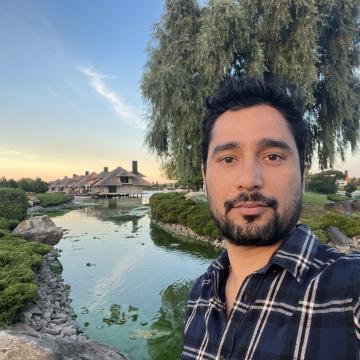HHSCM Alumni Spotlight
Susan Pokharel (Class of 2016)
Logistics Officer, UN World Food Programme (WFP)
Rome, Italy

About Susan
Susan Pokharel is a humanitarian logistics professional with over ten years of experience in emergency response, supply chain management, and capacity strengthening. Currently, he works with the World Food Programme (WFP) in Rome, supporting country offices in delivering timely and effective logistics services. Over the years, Pokharel's work has taken him to various crisis contexts including Somalia, Türkiye, Ukraine, Ethiopia, and most recently Gaza, where he contributed to WFP’s emergency response operations. He hold a postgraduate degree in Sociology, a degree in Environmental Science, and a professional certification in Health and Humanitarian Supply Chain Management from Georgia Tech in 2016.
-
What were some of the most valuable takeaways that you were able to apply either in your role at the time or your current role?
The things that I do with WFP are a little bit different than what I what we learned from [the course]. But there are some [situations like] the ordering point when you order the next cargo coming in, buffering stock. These kinds of things were really helpful, especially when I was in Angola. At the time I was managing this health supply chain, so I was leading the project. I was there for two and a half months on temporary duty...and at the time I had to talk with UNDP--a different UN agency--for this HTB malaria medicines with a global front project. So that knowledge helped me to know: what would be my buffer stock; what would be the lead time; how do I calculate when the OR next order should be asked from the from UNDP?
Can you think of a specific instance in which your company benefited from your participation in the certificate program?
After I came from the US, I did eight months for water supplies. So [the program] helped me to do the modeling [of scenarios such as]: what would be in our distribution side; how the things might go in the supply when the distributor will ask for us for next replenishment of the cargo, meaning the water bottles. So that was useful, yes.
In your opinion, who would benefit from taking this professional education course?
One would be those people who have experience, meaning ground experience, they are doing logistics or they have been doing the same thing again and again, you know, getting some exposure of how the things works on a on a formal way. That is one candidate that may benefit from this. Second would be somebody who has already done the logistics...it will give a kind of a crash course refresher for them to get updated on how things works.
If you had to recommend the program in just a few words or a sentence, what would you say?
If you get a chance, then get enrolled in this certificate in Supply Chain management. It might be a refresher if you are already formally trained logistician. If you want to know much more about logistics, it might be a opening path for someone to get started in a certificate course, and then go further if they are interested. And secondly, it gives a wide range of network people. You may see people from all around the world. So if you are in humanitarian sector, it gives you a wide range of people that you could meet in coming days of life, in your work. So it's always a win to know people because it always comes with some opportunities or even you make it end up with making a good friend. Or, it makes the things easier to work if you already know the people, especially in humanitarian supply chain.